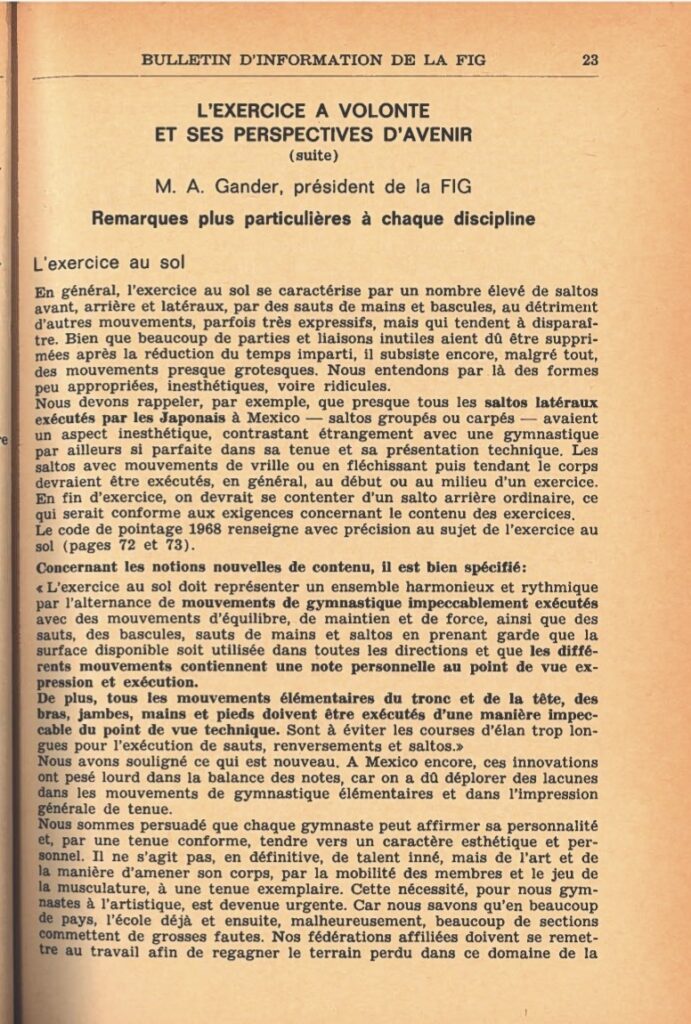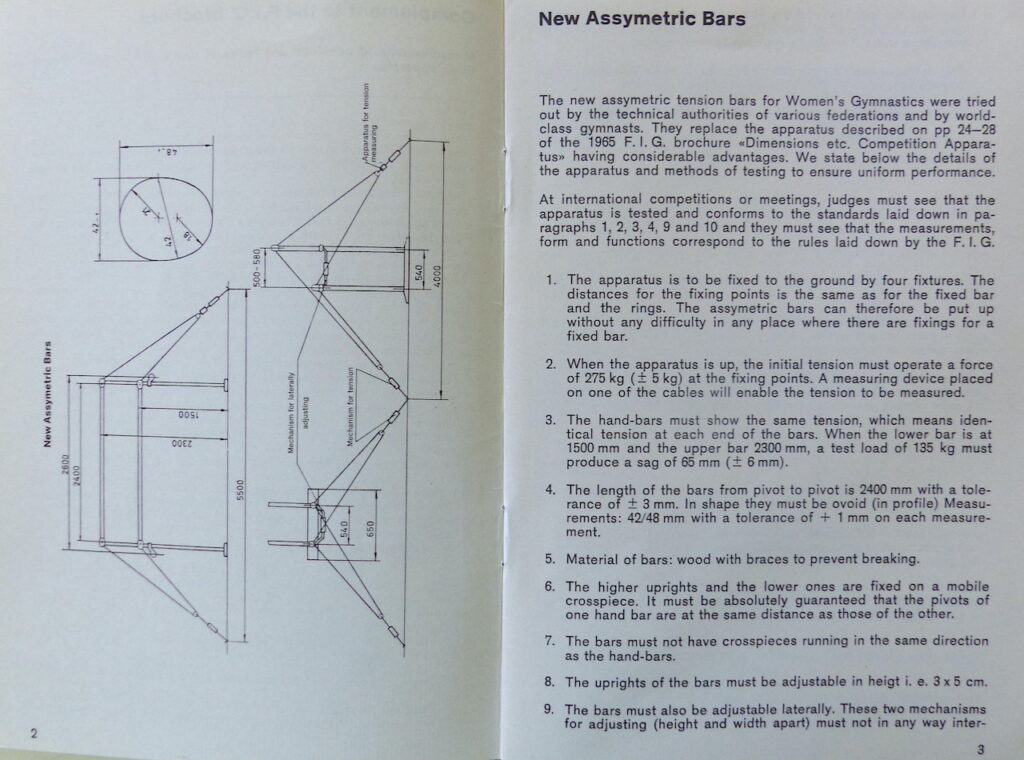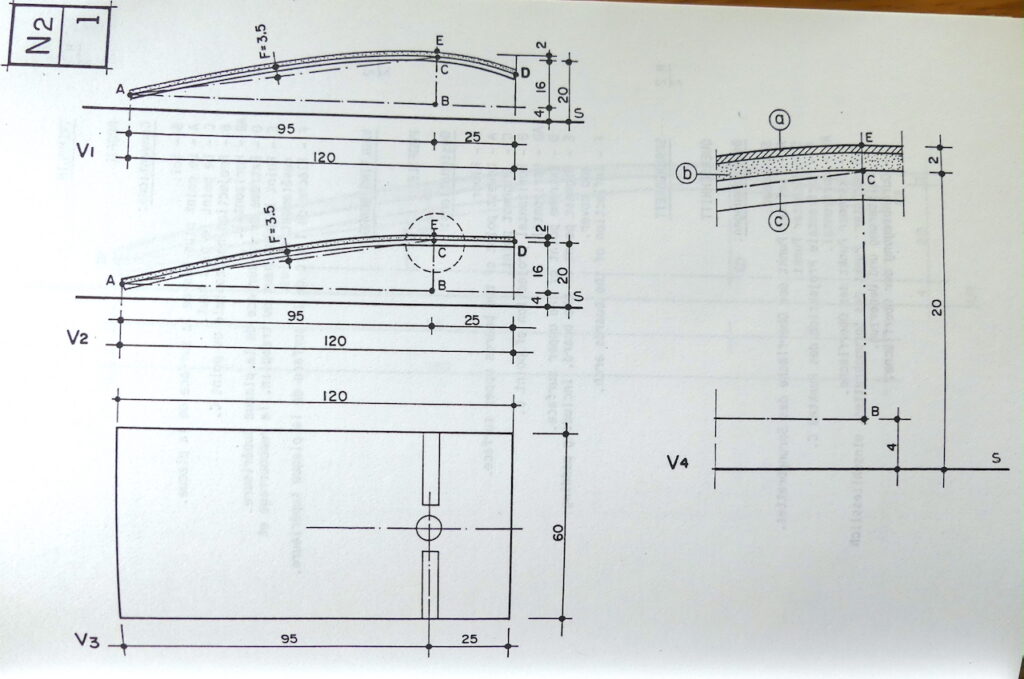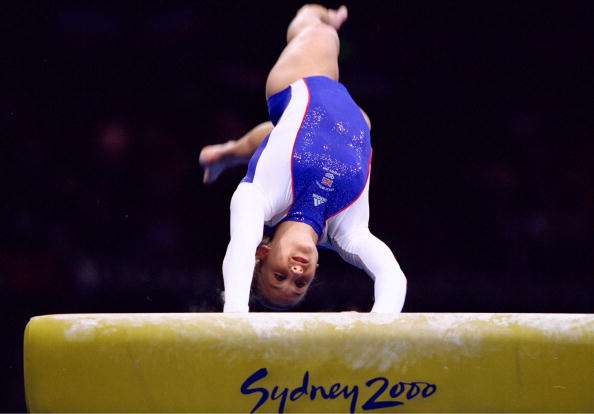In a 1971 bulletin, Arthur Gander, who was president of the FIG at the time, published a long series of remarks about the state of optional exercises in men’s gymnastics. Gander’s article touches upon some of the challenges in both men’s and women’s gymnastics that persist to this day.
For example, monotony. Even in the era of risk, originality, and virtuosity, there were certain skills and combinations that had almost become compulsory. (Granted, risk, originality, and virtuosity were still in their infancy at that point.)
Side saltos. Gymnastics fans love to hate on side saltos on beam, and guess what! Arthur Gander didn’t like them, either, on men’s floor!
Value assignments. What constitutes an A, B, or C part? Should such-and-such skill really be a C? Yup, the FIG was wrestling with those questions back in the day, as well.
There’s also the question of nostalgia. As you read Gander’s remarks, you might find yourself wondering, Does Mr. Gander want to see these skills because they would add variety or because they are representative of a different era of gymnastics? And how often does nostalgia for a past era color our view of gymnastics today?
Finally, the fear of the “feminization” of men’s gymnastics. Though Gander believed that men could learn a thing or two from women’s uneven bars, he feared that men’s floor exercise could become too feminine, especially if floor music were included. It’s a question that has been raised as gymnasts like Heath Thorpe (AUS) incorporate more leaps into their floor routines.
Another interesting tidbit: Gander mentions that the IOC was not pleased with men’s vault in 1968, questioning whether the event was worthy of an Olympic medal.
Below, you’ll find my translation of Gander’s remarks. (The FIG provided its own English translation in its bulletin, but the translation was quite rough and difficult to follow.)



